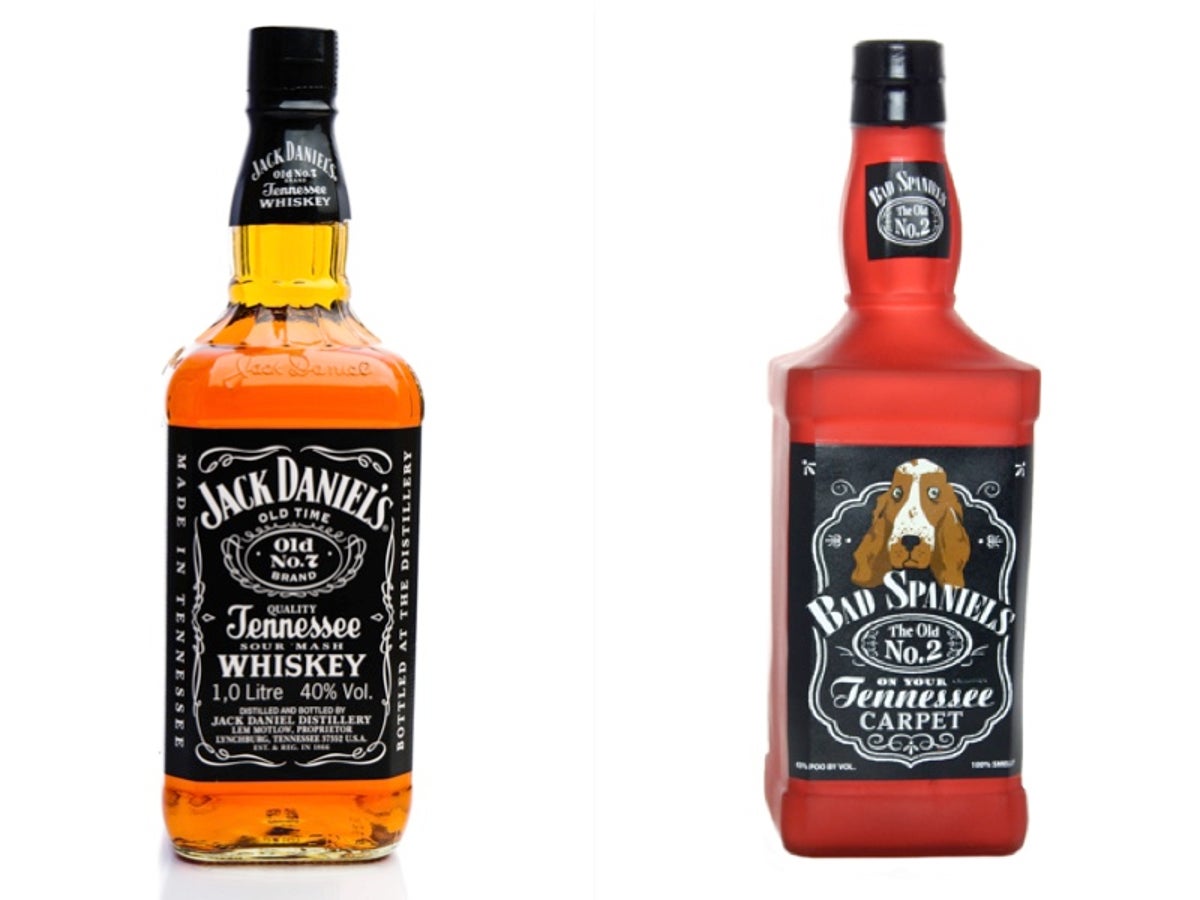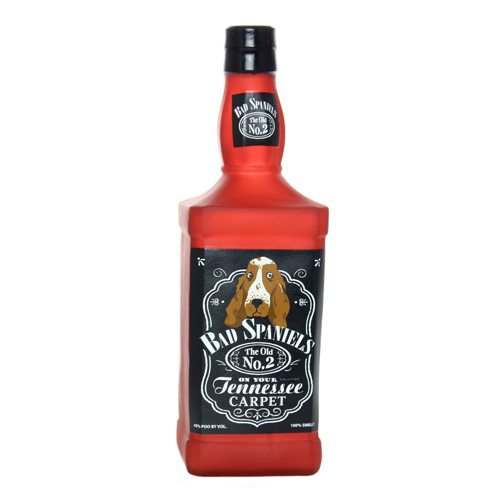
The United States Supreme Court has sided with Jack Daniel’s over a trademark dispute with a dog accessory company, which parodied the iconic whiskey brand.
On Thursday (8 June), the Supreme Court overruled a decision made by a lower court, which declared that the “Bad Spaniels” chew toy sold by VIP Products was “non-commercial” and therefore protected by the US Constitution’s First Amendment.
According to CNN, Jack Daniel’s claimed the chew toy violated federal trademark law – in a case that could redefine how the courts apply constitutional free speech to trademark law.
The chew toy’s design – which is strikingly similar to the Tennessee whiskey bottle – featured the words “Bad Spaniels” instead of “Jack Daniel’s” and “The Old No 2 On Your Tennessee Carpet” rather than “Old No 7 Brand Tennessee Sour Mash Whiskey”.
The label also read “43% Poo By Vol” and “100% Smelly” at the bottom of the toy.
Jack Daniel’s Properties Inc demanded that the Arizona-based company stop selling the comical poop-themed chew toy. VIP Products claimed they “neither infringed nor diluted Jack Daniel’s trademarks,” while Jack Daniel’s countersued for “infringement and dilution.”
In 2020, the ninth US Circuit Court of Appeals in San Francisco, California declared that the Bad Spaniels toy was an "expressive work" protected by the First Amendment. It also ruled that the Jack Daniel’s trademark was “noncommercial” because it was used not only to sell dog toys but also “to convey a humorous message,” according to Reuters.

VIP Products argued that Jack Daniel’s infringement claim failed under the “Rogers test”, which is commonly used in trademark law to allow artists to lawfully use another’s trademark when it has “artistic relevance” to their work and would not “explicitly mislead” consumers about the “source or the content of the work.”
However, the Supreme Court ruled on Thursday in a unanimous decision that, just because the Bad Spaniels toy copied the Jack Daniel’s trademark it automatically enjoys special protection from trademark claims.
“This case is about dog toys and whiskey, two items seldom appearing in the same sentence,” wrote Supreme Court Justice Elena Kagan in the opinion. “Today’s opinion is narrow. We do not decide whether the Rogers test is ever appropriate, or how far the ‘noncommercial use’ exclusion goes.”
“The use of a mark does not count as noncommercial just because it parodies, or otherwise comments on, another’s products.”
“We hold only that it is not appropriate when the accused infringer has used a trademark to designate the source of its own goods – in other words, has used a trademark as a trademark,” she said. “That kind of use falls within the heartland of trademark law, and does not receive special First Amendment protection.”







